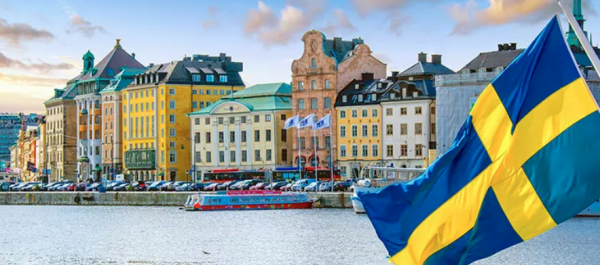The Uniqueness of the Swedish Casino License
Sweden, known for its progressive policies, stands out with a distinctive approach to casino licensing that sets it apart from many other markets. In this article we delve into the key aspects that make the Swedish casino license unique and explore how it differs from licenses issued in other countries.
A holistic view
In Sweden, the landscape of gambling operates within a distinctive framework that intertwines both government control and private enterprise. At the core of this arrangement is Svenska Spel, a state-run entity wielding a monopoly over specific gambling activities.
Svenska Spel: The monopoly player
Svenska Spel, established in 1997, holds a unique position within the Swedish gambling market. Its monopolistic grip extends over various gambling activities, including casinos, lotteries, and betting on horse racing. This centralized control ensures comprehensive oversight seldom seen in countries embracing a more privatized approach.
Balancing act: Licensed operators enter the scene
While the monopoly reigns in certain sectors, Sweden has introduced the Swedish Gambling Authority (Spelinspektionen) to inject an element of competition. Private enterprises are now allowed to operate online casinos, introducing a balance between state control and a competitive, open market.
The regulatory landscape
The Swedish casino license is not merely a document; it's a commitment to responsible gambling. A robust regulatory framework forms the backbone, ensuring player protection and the promotion of responsible gaming. From age verification to self-exclusion options, these measures collectively contribute to a secure and conscientious gaming environment for Swedish players.
Taxation: A contribution to the common good
Integral to the Swedish model is a transparent taxation system for gambling operators. Every casino that wants to market themselves in Sweden are obligated to contribute a portion of their gross gaming revenue to public funds.
This revenue, earmarked for various public services, exemplifies Sweden's dedication to utilizing gambling proceeds for the collective welfare.
Advertising regulations
To prevent the pitfalls of excessive marketing, the Swedish casino license incorporates stringent advertising regulations. Operators must adhere to guidelines that promote responsible advertising, ensuring their strategies don't exploit vulnerable individuals or encourage excessive gambling.
Safeguarding player interests
Ensuring high standards of technology and security is paramount for Swedish online casinos. State-of-the-art encryption technologies are employed to safeguard players' personal and financial information. This commitment reflects a dedication to providing a secure online gaming environment and building trust among players.
Licensing fees
Obtaining a Swedish casino license is not a mere formality but a financial commitment. Operators are required to pay licensing fees, contributing to the regulation and oversight of the industry. These fees, coupled with taxation, bolster the economic sustainability of the gambling market in Sweden.
Ethical gaming: A core principle
Gambling is not just a commercial venture; it's a commitment to social responsibility. Licensed operators are expected to actively engage in efforts to prevent problem gambling and support initiatives promoting responsible gaming.
Key points of the Swedish casino license
1. Monopoly and competition
- Svenska Spel holds a monopoly over specific gambling activities.
- Introduction of the Swedish Gambling Authority allows private companies to operate online casinos, striking a balance between state control and competition.
2. Strict regulatory framework
- Robust regulations ensure responsible gambling.
- Measures include age verification, self-exclusion options, and tools for responsible gaming.
3. Transparent taxation system
- Casinos contribute a portion of their gross gaming revenue to public funds.
- Revenue is utilized for various public services, reflecting a commitment to societal benefit.
4. Advertising regulations
- Stringent guidelines prevent excessive marketing and promote responsible advertising.
- Social responsibility
- Licensed operators actively engage in preventing problem gambling and supporting responsible gaming initiatives.
Since the implementation of the Swedish casino license, the gambling landscape in Sweden has undergone a remarkable shift. The introduction of this license diversified the market, welcoming private operators and fostering healthy competition.
This change not only broadened the array of online casinos available to players but also elevated player protections through stringent regulations. Age verification, self-exclusion options, and responsible gaming tools have become standard practices, ensuring a safer gambling environment.
The transparent taxation system has contributed to public funds, directing revenue toward various public services. Looking ahead, the future of the Swedish gambling industry may involve further refinements to regulatory measures, continued efforts in promoting responsible gambling, and potentially, adaptations to address emerging technological advancements and consumer needs.
The introduction of the Swedish casino license has set the stage for a more regulated, competitive, and player-focused gambling landscape.
- B.E. Delmer, Gambling911.com














